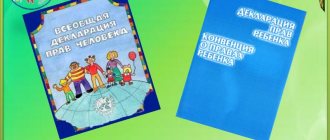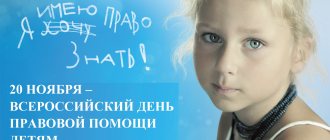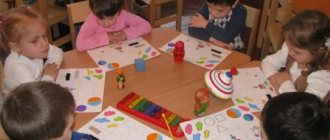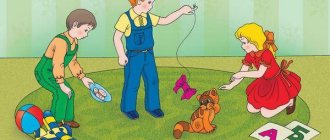Class hour "Day of Knowledge"
Compiled by:
Smirnova N.E.
Day of Knowledge
Dear guys, I congratulate you on the first day of school, on Knowledge Day! I wish you new discoveries, new successes, new knowledge. Good mood to you! The summer holidays are over and the school bell has rung.
We have to study for 9 whole months, communicate with each other in lessons and extracurricular activities, and this is 1085 academic hours, 210 academic days.
This list can be continued, but we will now try to answer the question: “Who do you want to be close to for so long: with a school friend or with a person who will never come to the rescue, will not ask: “How are you?”, will not give you any advice. lesson, won’t he talk to you at recess?” Of course, the answer is clear - with a friend.
Look around, there are 12 of us. And everyone wants to have a friend. There is no such person who could live his whole life alone. We are lucky: each of us can have 12 friends in our class. And that's great!
- To begin with, let’s compile our common newspaper of memories “This is what our summer is like!”
- Today the school has gathered us, we are in our office surrounded by our classmates. Now we will find out something and find out hidden details about each of those present. And your activity and applause will help us with this. The one who applauds... (students applaud)
- glad to meet friends;
- I didn’t miss school at all;
- went to school happily;
- I read everything that was assigned for the summer;
- I was determined to graduate from school with “4” and “5”;
- will graduate from school with a medal;
- does not want to leave school;
- have already decided on their future profession;
- is already looking forward to the next holidays;
- wants to sleep and can’t think about anything else yet;
- met my favorite teacher today;
- got up on the wrong foot;
- I'm already afraid of the upcoming exams...
Each of you must fill in the chamomile petals, from which we will make a summer lawn.
- In our class, the most independent person is... I was often pleasantly surprised... Life is a difficult thing, but, in my opinion, he will never get lost in it... A bully will be very unlucky if he meets on his way... The most gifted person in our class is... Better knows how to listen, understand and support everyone in the class... If the class is boring, it means there is something missing... It’s interesting for me to watch how people answer at the board... Perhaps we will very soon see excellent students... Most often I will dream... Resourcefulness is inherent... Decoration disco is... The kindest person in the class can be called... In politics, it is advisable to recommend... Generosity knows no bounds in... Modesty always adorns... Class is more fun when it comes... The most charming smile in...... Will always come to the rescue at any time of the day and nights...
It is unlikely that any of you will claim that you know for sure how your future life or at least the near future will turn out. The future is unknown to anyone. We can only guess how and what will happen to us in the near future.
Or you can try to look into the future by turning to predictors. But in our time, any fortune teller values her work very highly, and we can’t afford it. I offer a completely free and almost error-free method of fortune telling.
Write on the 1st strip the name of the educational institution you are trying to enroll in (after writing, we give the strips to the teacher)
2) – what profession would you like to get;
3) – what city would you like to live in;
4) – what would you like to give to your closest person;
5) – name a country you know a lot about;
6) - name a classmate whom you will remember more often than others;
7) – a place where you consider it possible to have a heart-to-heart conversation;
– a dish or drink that you would like to try.
On the table in front of the audience I lay out 8 piles with written stripes.
Students take turns going out and pulling strips, making up a comic story of their future life from the notes they pulled out:
Game activity as a form of expanding the legal knowledge of junior schoolchildren
“Game activity as a form of expanding the legal knowledge of junior schoolchildren”
Scenario of an intellectual and legal game-travel event
“
Little children have great rights”
Prepared by the methodologist of MAOU DO “DDT” Kodochigova E.A.
Target
: Formation of the legal culture of junior schoolchildren through different types of gaming activities.
Tasks:
improve the legal culture of students; expand legal knowledge; develop skills in decision-making in specific life situations; stimulate creative activity; take measures to prevent crime.
Progress of the event
1. Greeting
The recording includes the song “It’s Interesting to Travel” by G. Gladkov
.
Presenter 1:
Hello, we are pleased to welcome experts - participants in our intellectual and legal game, the theme of which is “Great Rights for Little Children”! We have gathered to talk about rights, because there is no happy, free and interesting life if a person does not have rights and cannot use them. Every year on November 20, World Children's Day is celebrated to commemorate the adoption of the Convention on the Rights of the Child. And on December 10, World Human Rights Day is celebrated. Also a very important date. And today, December 12, is the day of adoption of the new Constitution of the Russian Federation. We dedicate today’s meeting to all these significant holidays and invite you to go on an unusual journey – a journey through the Land of Rights.
This game will take place across stations. The task of the experts at the stations is to monitor the correctness of the teams’ answers, check the accuracy of completed tasks, and summarize the results of the rounds. They also ensure that the rules of the game are not violated, keep records of points earned, and they also have the right to make a verdict in a controversial situation. I ask the experts to take their places. (The experts go to the place allocated for them.)
Presenter 2:
It's time to address our fans, I want to remind you that your support will give strength and energy to all participants in the game, and maybe your answers will even contribute to the victory of your team. During the game there will be a game with the spectators, for the answers the fans will receive small tokens, the one who collects the most tokens will be awarded.
Presenter 1:
Let the judges be fair. Let the players exercise their rights. And we are off on a journey to the Land of Rights! Team captains, please receive your route sheets!
Team captains receive route sheets:
Figure 1
Cities - Pravo-upravlyayka, Pravo-music, Pravo-fairy tale, Pravo-znayka, Pravo-igrayka are waiting for you to visit, good luck! We wish you creative success and good luck.
- City "Pravo-manager"
Presenter 2:
Guys, where do you think the Motherland begins? (...)
Today we will talk about our Motherland - Russia, symbols and the basic law of our state.
- What is the Motherland? Why do you love her? (the country in which he lives; the house in which he was born; the place where his ancestors lived)
- Name the capital of Russia? (Moscow city)
- What is the official language of our country? (Russian)
- Name the plant - a symbol of Russia? (birch)
- What are the main symbols of our state? (coat of arms, flag, anthem)
- What is the name of the fundamental law of the Russian Federation? (Constitution of the Russian Federation)
- How does one state differ from another? (the language the people speak, their symbols, history, customs, traditions, geographical location)
- What can you tell us about the coat of arms, flag, anthem of the Russian Federation?
We have a very beautiful coat of arms. It depicts a double-headed eagle (gold) against the background of the Russian flag. The eagle is a symbol of the sun, heavenly power, fire and immortality, and 2 heads to look in different directions and protect the Motherland from enemies. This is a very ancient coat of arms. It was first introduced by Tsar Ivan III. Inside the Russian coat of arms is the coat of arms of Moscow. On it, on a red background, St. George the Victorious is depicted slaying a dragon with a spear. The coat of arms is the emblem of the state. It is depicted on stamps, passports, and banknotes.
The national flag is a three-color cloth with white, blue and red stripes. His birthday is considered to be January 20, 1705, when Peter I issued a Decree to establish this flag as a symbol of Russia.
What do the colors of our flag symbolize?
- Version 1: unity of sea, earth and sky.
- Version 2: the unity of the three Slavic peoples.
- 3 version white – peace, purity, perfection; blue – faith, fidelity, constancy; red – strength, blood shed for the Motherland.
- The anthem is a solemn song that glorifies the history of the state and its people.
- When is the anthem of the Russian Federation performed?
- Why does everyone stand up and sing the anthem?
There is a book of truth and freedom, Our whole life is its words. The peoples imprinted in it their sacred rights.
- What is this book? (Constitution of the Russian Federation)
- The last Constitution was adopted by popular vote on December 12, 1993.
- Who is the guarantor of the Constitution of the Russian Federation, the rights and freedoms of man and citizen?
- Who is the president of our country?
- Who is the Prime Minister of the Russian Federation?
Theoretical task "Crossword"
2. City "Pravo-Muzyka"
Presenter 3:
Greetings, my young friends.
You, like all full-fledged members of our society, have the right to leisure, recreation and cultural life. (Shows sign)
States Parties recognize the right of the child to rest, leisure, the right to participate in games and recreational activities appropriate to his age, and to participate freely in cultural life and the arts.
The participating States shall respect and promote the rights of the child to full participation in cultural and creative life and shall promote the provision of appropriate and equal opportunities for cultural and creative activities, leisure and recreation.
I suggest you guys play “Orchestra” (explains the rules of the game)
Game "Orchestra"
A children's song is selected. The leader-conductor begins to conduct: hand at the top - they sing louder, in the middle - in a normal voice, at the bottom - quietly. Choose the best conductor.
And now I’m listening to the songs, and you have to say what rights they are talking about.
- “Song of the Bremen Town Musicians” (right to freedom, movement, peaceful assembly);
- “On the steep bank” (the right to rest);
- “How far has progress come” (the right to enjoy the benefits of scientific and technological progress), etc.
And now we will play again...
Musical game "Find me"
One of the players is asked to leave. While he is away, they hide the little animal in some accessible place. When the player returns, they explain to him that he needs to find a toy. The song will help him with this. When he approaches the object, everyone will sing loudly, and when he moves away, everyone will sing quietly.
Choose the best player (will find the toy in the shortest time)
3. City "Pravo-skazka"
Presenter 4:
On November 20, 1989, the Convention on the Rights of the Child was adopted. It states that the states that signed it have committed themselves to taking care of you, your health, well-being, education and comprehensive development.
Who knows how many articles the Convention contains? (54 articles)
I suggest we get to know some of them.
- The right to live.
- The right to a name at birth.
- Right to medical care.
- Right to education.
- The right to rest and leisure.
- The right to have property (received as a gift or inheritance, as well as acquired with the child’s funds).
- The right to freely express your views.
- Right to free movement.
- The right to care and education by parents.
- The right to full development and respect for human dignity (no child should be subjected to cruelty, violence or abuse).
- The right to protect their rights and legitimate interests of parents.
- Right to privacy.
(During the conversation, find out how students understand each named right).
Now let’s try to understand the rights of literary heroes...
Quiz “Rights of literary heroes”:
- In which fairy tale is the right to personal integrity, life and freedom violated? (“Gray Neck”, “Little Red Riding Hood”, “Thumbelina”, “The Tale of the Fisherman and the Fish”).
- What literary heroes could complain that their right to the inviolability of their home was violated? (“The Three Little Pigs”, a bunny from the Russian folk tale “The Ice Hut”).
- Which fairy-tale heroines suffer from interference in their privacy? (Lyudmila from A.S. Pushkin’s poem “Ruslan and Lyudmila”, Marya Morevna is a character in Russian folk tales).
- The heroines of which fairy tales took advantage of the right to free movement and choose their place of residence? ("Frog traveler").
- In which fairy tale did the heroine exercise the right to seek and find refuge and protection from persecution in other countries? (“Thumbelina”).
- In which fairy tale is a person’s right to own their property violated? (“The Golden Key, or The Adventures of Pinocchio”).
- Which literary heroes took advantage of the right to freedom of peaceful assembly? (“Musicians of Bremen”, “Quartet”, “Snow White and the Seven Dwarfs”).
- Which famous literary character took advantage of the right to work, and ensured free choice of work and fair working conditions for himself and others? (Tom Sawyer)
- Which fairy tale confirms the right of a working person to fair remuneration? (“Moroz Ivanovich”, “Mistress Blizzard”, “The Tale of the Priest and His Worker Balda”).
- Which famous fairy-tale heroine had her right to rest and leisure, or a reasonable limitation of her working day, violated? (Cinderella).
Guys, I really hope that you remembered everything we talked about today and understood it correctly.
4. City "Pravo-Znayka"
Presenter 5:
Now you and I are in a city where children live who know their rights and responsibilities.
(Children stand one after another and set off to the music, repeating the words after the leader).
We need to know the rights of a child, not only know them, but observe them. Then it will be easy for us to live, play, be friends and not bother.
Creative task “KNOWING YOUR RIGHTS, FULFILL YOUR RESPONSIBILITIES”
(Children take turns going to the poster, reading the sentences and attaching the correct card).
- A girl teaches a dog to count (the right to study).
- Alice treats the bear's paw (the right to treatment).
- A boy with a dog goes to a museum (the right to study in clubs and sections)
- Katya cleans the room (right to work).
- Children sit at their desks (they are required to follow the school regulations).
- Children play (right to rest).
- A girl hairdresser cuts a doll's hair (they must walk neatly).
Every school has rights and responsibilities for students. (Reading rights and responsibilities, presenting memos to each class/detachment). Where are the rights and responsibilities of students written down? (in the school charter).
5. City "Pravo-igrayka"
Presenter 6:
Once upon a time, thousands of years ago, people appeared on earth. At the same time, the main questions arose:
- What can people do and what can't they do? (...)
- What are they entitled to and what are they not entitled to? (...)
- People took on the solution of these problems in conversation among themselves with the help of various solutions, through international negotiations. Finally people managed to solve this problem.
- The Universal Declaration of Human Rights was born. Not only adults, but also children have rights.
- Where are they recorded? (in the Declaration of the Rights of the Child)
- Who created and adopted the Declaration? (UN)
Today we will learn some rights in the “Right Game”.
- “The right to a name at birth” Game “Guess whose voice.”
- “The right to rest and leisure” Game “Blind Man’s Bluff”.
- “The right to study” Relay race “Who will complete the logical task faster and correctly.”
Guys, if you follow everything that is written in the Declaration of the Rights of the Child, then life will become calmer and happier. Treat people the way you would like to be treated.
Summarizing.
Rewarding.






